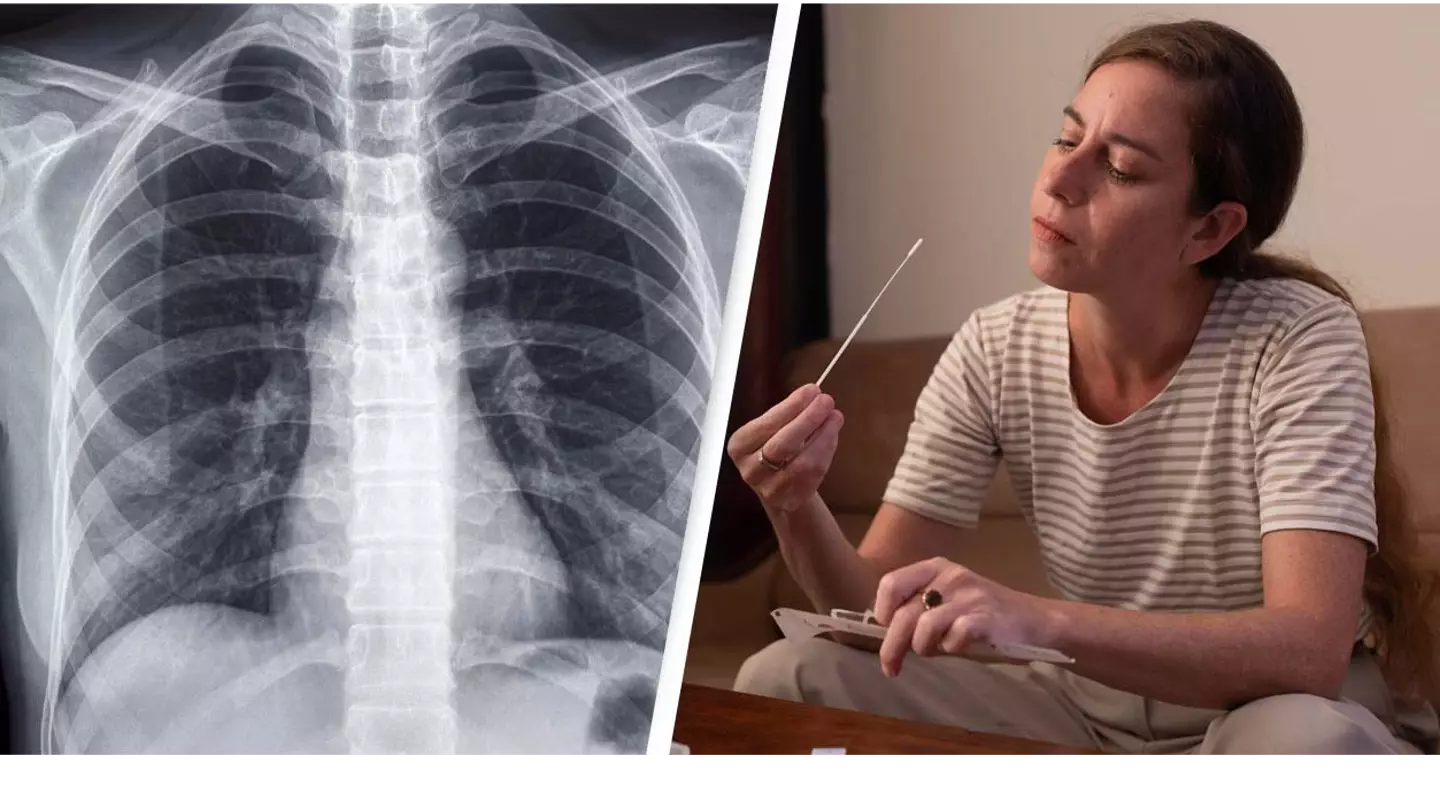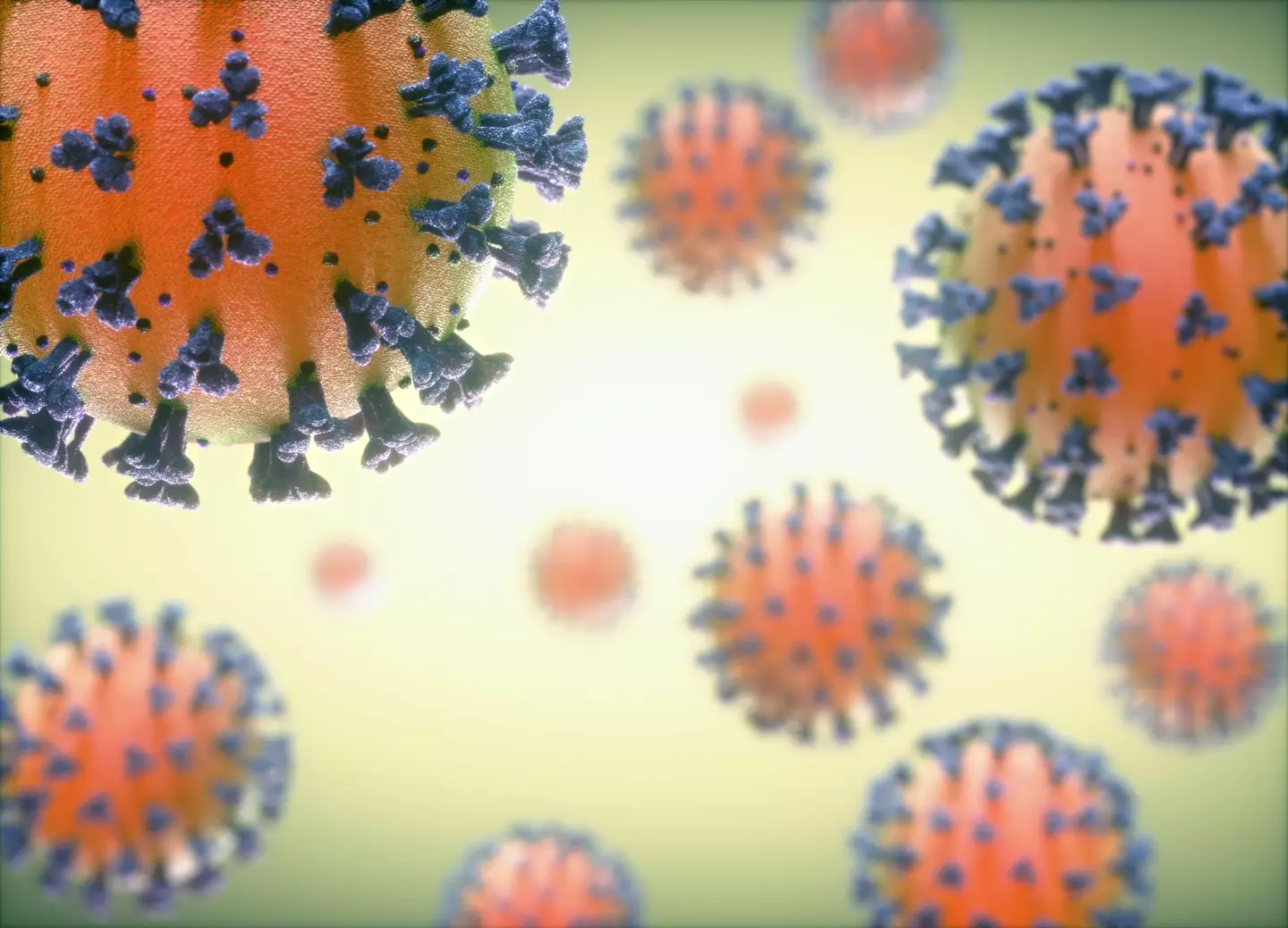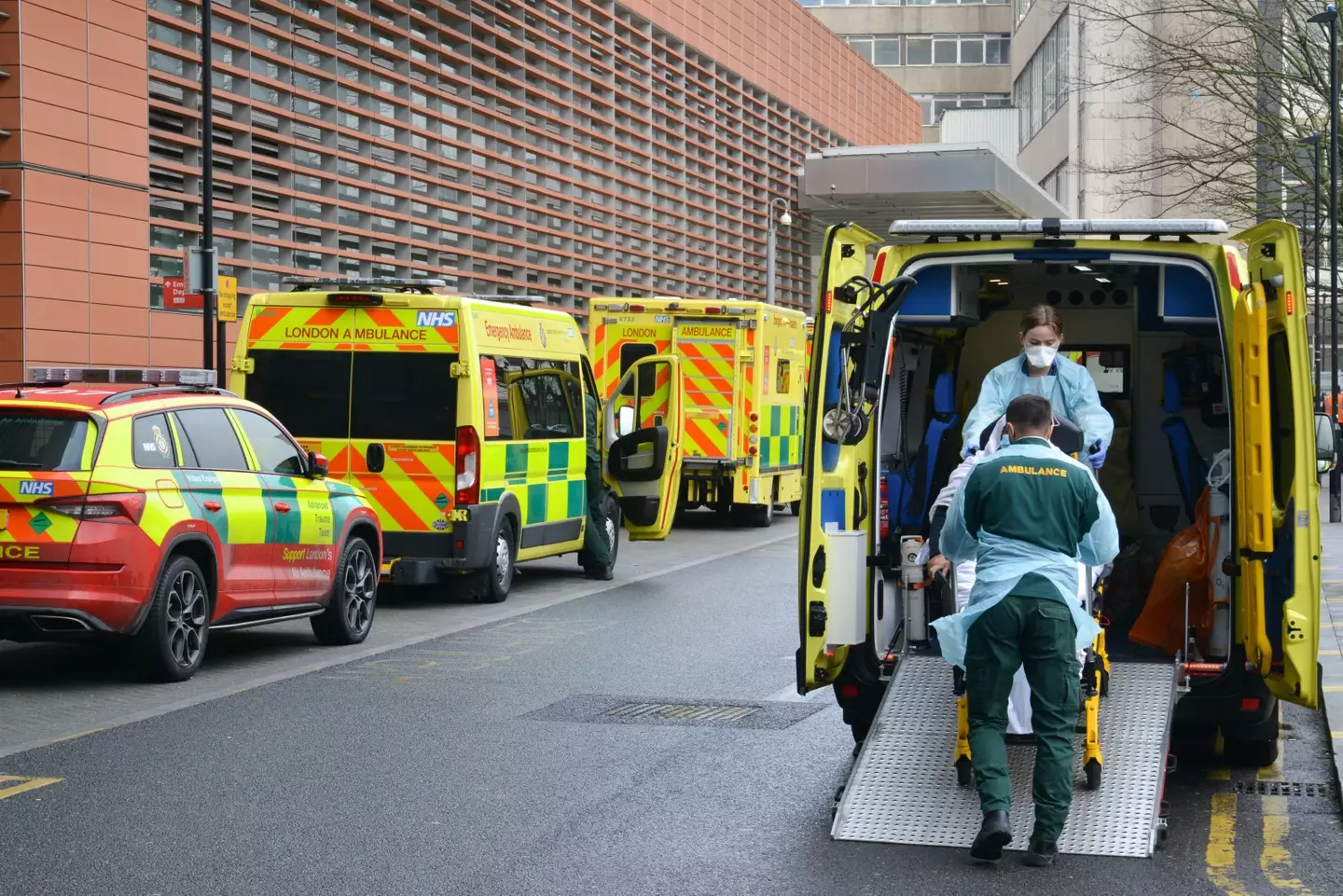
A study has suggested that some people who suffer from long coronavirus could have hidden lung damage.
An NIHR funded team of scientists from Oxford, Sheffield, Cardiff and Manchester conducted a small pilot study which examined the lungs of 11 people suffering from long Covid symptoms, using a novel xenon gas scan.
The scan is used to detect any abnormalities within the lungs which cannot be picked up by routine scans such as X-rays and CT scans.
Three groups of people were used to compare xenon gas scans versus other lung-function tests, BBC News reports.
The first included people who who had experienced long-lasting breathlessness as a result of having contracted coronavirus, but who had not required hospitalisation.
Advert
The second was a group of 12 people who didn't have long Covid, but had been admitted to hospital, and the third category was formed of 13 'control' healthy people.

Participants were all subjected to a magnetic resonance imaging (MRI) scan, while inhaling xenon gas, which helped researchers to visually 'see' how well the gas moved from the lungs into the blood stream.
The results showed that the gas transfer from lungs to blood stream - which is crucial in helping the flow of oxygen around the body - was less effective in the majority of people suffering from long Covid, as opposed to the 'control' group of healthy people.
Advert
Similar abnormalities were also found in the group of participants who had required hospitalisation for their Covid.
Researchers explained that the testing built on an earlier study which had incorporated people who had been hospitalised upon contracting the virus.
While it is reportedly difficult to identify the reasons behind why people feel short of breath due to the complexity of the issue and wide breadth of possible causes, it is hoped the results from the studies will help reveal why it is particularly common for those with long Covid.
Advert
Dr Emily Frazer, the lead researcher of the study and a lung specialist, reflected: 'This is important research and I really hope this well shed more light on that.'
However, she also noted that 'rehabilitation strategies and breathing retraining can be really helpful,' which she deemed 'important' for people to know. 'When we see people in clinic who are breathless we can make progress,' she reassured.

The results of the studies - the print of which has not yet been through its formal peer review - have left a series of 'important questions to answer,' according to Professor Fergus Gleeson, who was the co-chief investigator in the pilot.
Advert
'Such as, how many patients with long Covid will have abnormal scans, the significance of the abnormality we've detected, the cause of the abnormality, and its longer-term consequences,' he said. 'Once we understand the mechanisms driving these symptoms, we will be better placed to develop more effective treatments.'
If you’ve been affected by coronavirus and want up to date advice, visit the Gov.uk help page here. If you need medical help call NHS 111 or visit online
Topics: Coronavirus, UK News, Health